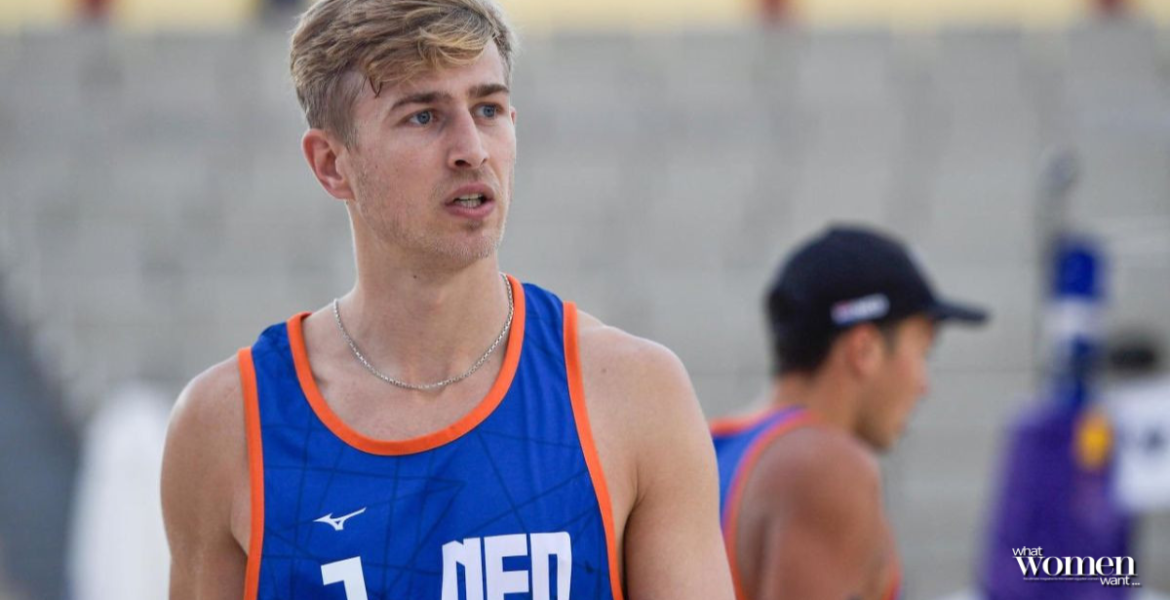The Dutch Volleyball Association and Dutch Olympic Organizers are maintaining their stance to send Steven van de Velde, a Dutch volleyball player, a man convicted of rape to the Paris Olympics this summer to represent the Netherlands in beach volleyball. Van de Velde inclusion in this year’s Olympic games raises ethical questions and challenges the very essence of what the Olympics represent.
Van de Valde, 19 at the time, raped a 12-year-old British girl. He had met her on Facebook, in 2014. The Dutch volleyball player travelled from Amsterdam to the UK, got her drunk and raped her three times. A British court found him guilty and sentenced him to four years in prison in 2014. After only serving a year, he transferred back to the Netherlands, where his sentence was adjusted according to Dutch law. The Dutch volleyball player only spent 12 months in prison.
The volleyball association reported that after serving his sentence, he received professional counseling. Van de Velde resumed his beach volleyball career in 2017. Also, they reported that allowing van de Velde to participate in the Olympics is based on experts who stated that his chance of repeating the offense is very low.
The Effects of his Participation:
Van de Velde admitted to the crime and told Dutch media that it was the worst mistake of his life. Supporters of van de Velde claim that he is a changed man. But, critics state that the Olympics is not a platform for reformation. The participation of a convicted rapist in an event that symbolizes unity and fair play sends a chilling message to survivors of sexual violence. The Olympics are not only about athletic capabilities; they are about character and morality. Athletes are role models, entrusted with the responsibility to inspire and uplift communities.
Allowing van de Velde to compete undermines this trust. It betrays the victim of his crime and trivializing the severity of sexual violence. Critics state that it would be a grievous mistake to excuse his crime for his athletic achievements. In fact, allowing a convicted rapist to participate stands in contradiction to the Olympic principles. The Olympics must remain a symbol of hope and dignity, a platform where justice and fairness prevail above all else.
Van de Velde will not be staying with the other athletes representing the Netherlands at the Olympic Village. The change in housing is meant to ensure a sense of peace. But, the impact of his presence on fellow athletes cannot be overlooked. Sporting events should foster camaraderie and mutual respect, not unease and apprehension. To allow van de Velde to compete will taint the spirit of the Games. The Olympics are not a vehicle for personal redemption at the expense of collective values. True rehabilitation requires acknowledging the gravity of one’s actions and accepting the consequences, which he had not done.
The Cycle Continues:
The notion that men will always be easily forgiven, even for sexual assault and rape, is a direct reflection of systemic injustice and deeply ingrained societal biases. Despite progress in recognizing and addressing sexual violence, van de Velde is a the picture perfect example of how they are so easily forgiven. This leniency often stems from harmful stereotypes and attitudes that diminish the severity of these crimes, especially when the perpetrators are young men or hold positions of privilege. This way of thinking not only perpetuates cycles of harm but also undermines efforts to hold individuals accountable and provide justice for survivors.

